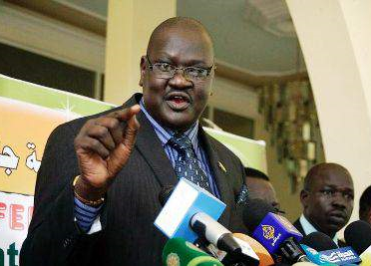South Sudan not using food as weapon of war, says official
November 13, 2017 (JUBA) – South Sudan on Monday dismissed a United Nations report claiming government deliberately uses food as a weapon of war to starve its population.

The UN report faults President Salva Kiir’s government for food insecurity situation in a nation where 1.2 million people risk starvation.
“The denial of aid had caused extreme food insecurity among large sections of the population, with malnutrition and death by starvation the documented outcome, in particular in the Greater Baggari area in Wau County,” says the report submitted to the Security Council.
However, the spokesperson for South Sudan’s presidency, Ateny Wek Ateny described the report to the UN Security Council as “biased”.
“The people of South Sudan are the very people the government seeks to govern so we don’t have any policy of using food as a weapon of war,” Ateny told reporters in the capital, Juba Monday.
The UN report said denial of humanitarian relief had caused extreme food insecurity among large sections of the population, with malnutrition and death by starvation in Baggari area in Wau county.
Ateny said President Kiir recently directed security agencies not to obstruct humanitarian aid in conflict zones to allow food aid to reach the needy.
Last month, a UN report said South Sudan’s government bears “primary responsibility” for incessant violence in the young nation.
The five-member panel established by the UN Security Council cited an absence of political will to implement a 2015 peace agreement and to address “the destructive governance practices and historical grievances that continue to drive the conflict in South Sudan.
The experts attributed these failures to the political and military elite of the country, with the primary responsibility for the ongoing violence resting with those in the government led by President Kiir and the first vice-president, Taban Deng Gai.
Neighbouring nations continue to experience adverse impacts of the nearly four-year-long civil war, yet are making no effective efforts to negotiate an end to the fighting, the report says.
The South Sudanese conflict has killed tens of thousands and displaced over two million people.
(ST)
